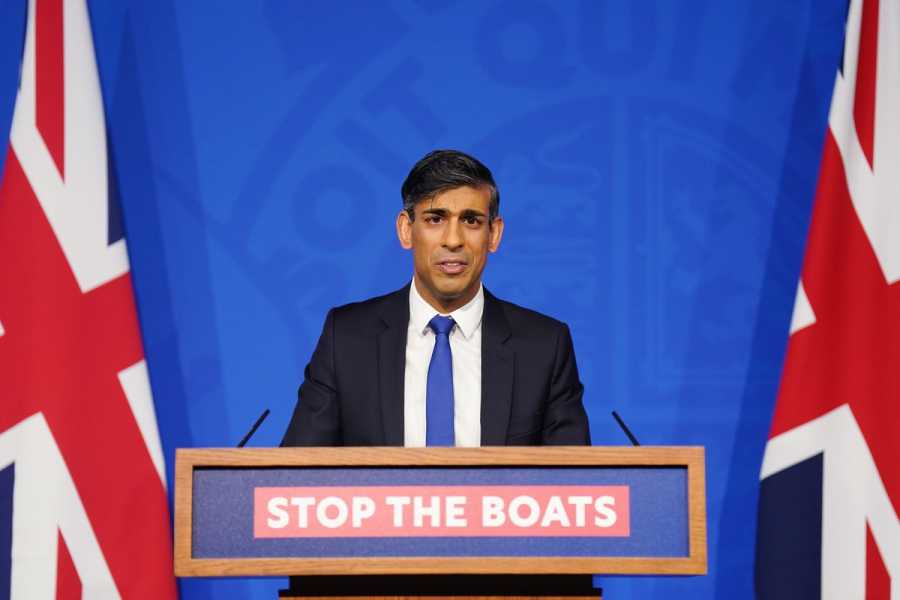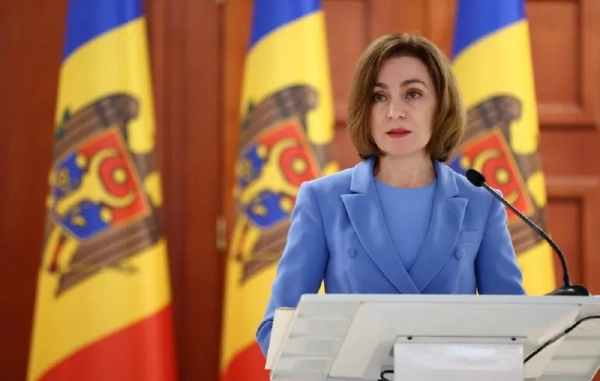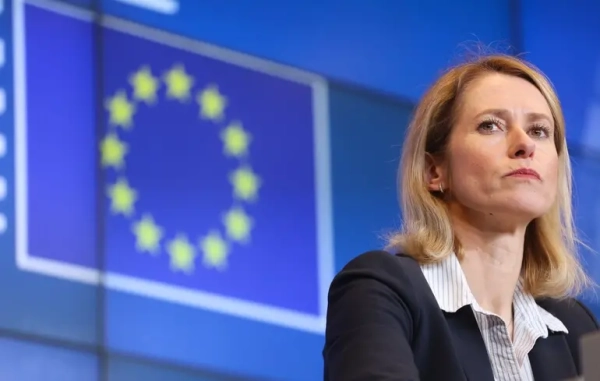There are already legal challenges to the new policy, but authorities detained some migrants this week.

Prime Minister Rishi Sunak conducts a press conference on a plan to stop illegal migration on December 7, 2023. James Manning/WPA/Getty Images Ellen Ioanes covers breaking and general assignment news as the weekend reporter at Vox. She previously worked at Business Insider covering the military and global conflicts.
The UK is again preparing to deport asylum seekers to Rwanda after Parliament created a workaround to enact a policy the high court declared unlawful.
Authorities have begun detaining migrants to deport to Rwanda under the revamped plan. But the policy faces major logistical issues, humanitarian concerns, and the likelihood that a future Labour government will scrap it.
Former Home Secretary Priti Patel initially proposed the controversial law in 2022 as a way to reduce irregular migration, particularly via small boats across the English Channel, which is on the rise in the UK. Her successor, Suella Braverman, also advocated for the plan until she was fired in 2023; Prime Minister Rishi Sunak then vowed to “stop the boats” and promised that the policy would become law.
Sunak succeeded on the latter front. Following legal challenges that saw the UK Supreme Court and the European Court of Human Rights declare the proposal unlawful, a bill declaring Rwanda safe for migrants and that limits the courts’ ability to adjudicate the country’s safety was approved as law by King Charles in late April, despite heavy opposition from the House of Lords. The government published a video on May 1 showing law enforcement authorities detaining people to send to the East African country as soon as July.
The law has been resoundingly criticized by human rights advocates, immigration lawyers, and Labour politicians who say it violates international law and is, to quote shadow Home Secretary Yvette Cooper, “an expensive gimmick.”
The law is part of a broader effort by Sunak and his Conservative Party to burnish their image as their government struggles to maintain support in the lead-up to a national election. Irregular migration has increased in recent years, but it’s not the driver of the problems that the UK is facing, including ongoing cost-of-living and housing crises. However, it is among voters’ top concerns, making the extreme anti-immigration law an appealing policy for a dysfunctional party struggling to maintain power.
Now, people fleeing their home countries and making the deadly journey to seek asylum in the UK are bearing the costs.
The UK’s Rwanda deportation policy, briefly explained
The Rwanda plan has been a policy priority for two years now, and it’s outlived two prime ministers and two home secretaries. The ostensible goal? To deter irregular migrations via the English Channel and other routes, ostensibly for the migrants’ own safety, and to disrupt human trafficking operations.
Though the government has declared Rwanda a safe country through its recent legislation, it is the threat of being sent there instead of potentially receiving asylum in the UK that is meant to deter people from entering the country.
Rwanda’s President Paul Kagame claimed that his country was simply trying to help out with “a very complicated problem all over the world” when Rwanda and the UK struck their initial agreement in 2022. But Rwanda will be well compensated by the British government for its purported generosity (more on that later). And critics say it also benefits Rwanda reputationally despite Kagame’s autocratic tendencies (which include threatening or jailing political rivals, repression of the media, and changing the constitution to extend his rule), not to mention the UK government’s own concerns that Rwanda is not a safe place for LGBTQ refugees.
But immigration has become a key policy pillar for the conservative government post-Brexit. Former Prime Ministers Boris Johnson and Liz Truss, along with Sunak, all touted their tough stance on immigration, hoping to appeal to socially conservative party members who see immigration as a key issue. Sunak and Truss backed the Rwanda plan, which was first proposed by controversial former Home Secretary Priti Patel.
The policy was deeply controversial from the start. It applies to the roughly 52,000 asylum seekers the government deems to have entered the UK illegally after January 2022. Under international law, everyone has the right to seek asylum, and countries are obligated to protect people in their territory seeking asylum under the 1951 Convention Relating to the Status of Refugees. The UK was one of the original signatories to that convention.
But under the new rule, regardless of whether their claims are valid, asylum seekers can now be detained, and forced to fly to Rwanda, where their asylum claims will ostensibly be processed and they will be resettled.
The plan “is effectively removing the UK from the asylum convention, because it removes the right to asylum which is explicitly guaranteed,” Peter William Walsh, senior researcher at the Oxford Migration Observatory, told Vox in an interview. It also could change the UK’s legal structure: the UK has threatened to withdraw from the court’s jurisdiction should it rule against the Rwanda plan.
Costs are already adding up; though no one has been sent to Rwanda and just a handful detained, the UK has already paid Rwanda 220 million pounds (about $270 million) to create infrastructure for asylum seeker processing. That number could skyrocket to more than half a billion pounds total (about $627 million) to send just 300 people to the East African country, according to a UK government watchdog.
Because of objections from advocacy groups, the UK Supreme Court, and the European Court of Human Rights (ECHR), no migrant in the UK has ever been transferred to Rwanda under the plan. (One migrant has been sent to Rwanda voluntarily under a separate policy that pays eligible migrants 3,000 pounds if they volunteer to be sent to the country.) As seven people awaited deportation to Rwanda in June of 2022, the ECHR intervened and issued injunctions stopping the migrants’ removal and pausing the controversial policy. Though the UK left the European Union in 2020, it is still part of the Council of Europe, which the ECHR has jurisdiction over, making the court’s decision legally binding. And in November 2023, the UK’s highest court ruled the scheme unlawful.
Sunak, however, doubled down on the Rwanda policy, introducing emergency legislation to have Parliament declare Rwanda a safe country, as well as working on a new treaty with Rwanda to address the court’s concerns that asylum-seekers might be sent back to their home countries.
That legislation, the Safety of Rwanda Act, passed Parliament in late April and unilaterally declared Rwanda to be a safe place to resettle migrants, paving the way for King Charles’s approval and the Home Office’s moves to detain some migrants who arrived by irregular routes.
Conservatives have made the case that the policy is the only way to deal with both the volume and the expense of current migration patterns. There has been a marked uptick in irregular migration to the UK, not just by the “small boats” crossing the English Channel from France. According to data from Frontex, the European border authority, there were 62,047 attempts to cross into the UK via the English Channel last year, which was down 12 percent from the previous year. Overall attempts at irregular border crossings in the EU and the UK were at the highest levels since 2016, a period of significant migration from Syria in particular.
Irregular migration makes up a fraction of all immigration cases to the UK — the majority of migration cases in 2023 came on work or student visas, according to the Oxford Migration Observatory — but it is extremely expensive, as migrants claiming asylum cannot work while awaiting processing and the government must pay their costs. Some estimates put asylum seekers’ housing costs alone at as much as 8 million pounds per day.
It is also highly visible, Sunder Katwala, director of the think tank British Future, told Vox, giving some British people the sense that they have no choice about who comes to their country. And the Rwanda plan is a highly visible answer to that anxiety, which the Tories hope will have political impact, Katwala said.
The plan still faces legal challenges, and it’s not clear that it will ever be successful
Despite this week’s detentions, the plan will still face significant challenges — not the least of which is the Labour Party’s vow to overturn the policy should it gain power in the national elections, which must take place by January 2025.
In the meantime the plan is almost certain to face legal challenges, both within the UK and quite possibly in the ECHR.
The primary legal challenge will likely be to the Rwanda Safety Act. The UK government’s assertion that Rwanda is a safe country doesn’t make it a fact, and measures to safeguard migrants deported to Rwanda under the UK-Rwanda treaty, like appointing independent asylum and humanitarian law experts to assess the cases of people for whom it might not be safe to stay in Rwanda, haven’t yet fully been implemented, according to an April 25 statement from the current Home Secretary James Cleverly.
The major concern for asylum seekers potentially deported to Rwanda is refoulement, or being sent back to their home countries. In theory, asylum seekers flee their homes under fear of persecution, death, or other harms — and were they to be sent back, they’d again face dire circumstances. The UK-Rwanda treaty is supposed to protect against that through a provision that explicitly bars Rwanda from sending asylum seekers to third countries.
However, even if Rwanda doesn’t refoul asylum seekers, it’s not clear that it would be safe for everyone sent there. The UK’s Foreign, Commonwealth, and Development Office has previously expressed concerns about Rwanda’s safety, especially the risks of extrajudicial killings, as well as the risk that LGBTQ people will be denied asylum there. “We know that [the government has] done risk assessments, and they know about the fundamental flaws” in sending people to Rwanda, Walsh said.
When Israel implemented a similar scheme from 2013 to 2018, thousands of people claiming asylum there went to Rwanda and were then sent to Uganda, where many tried to make it to Europe. Based on this program, not only did Rwanda not process asylum cases, but the government either sent people on to Uganda or didn’t track them once they arrived.
Advocacy groups and labor unions are challenging the law on humanitarian bases; the UK’s civil servants union claims the scheme would require them to break international law in carrying out their roles. And the ECHR could hear challenges to the law after it goes through the UK court system, and deliver a final ruling on whether the plan violates human rights, but that is unlikely to happen before UK general elections.
In the meantime, the government is facing some logistical problems in carrying out its plan; for starters, the government may not legally be able to detain people in the UK’s seven Immigrant Removal Centers until the first flights to Rwanda take off, Walsh said. And space will be an issue, too; there are 1,700 people in the centers, which Walsh called “akin to prisons,” and only 500 free spaces. That could lead to people being held in actual prisons, though UK prisons are already overcrowded.
Migrants have reportedly also started fleeing to Ireland, an EU country. Ireland’s justice minister Helen McEntee has said she will draft emergency legislation to send asylum seekers back to the UK, but the phenomenon has already increased tensions between Ireland and the UK.
Sunak has survived a reported attempt to oust him as Tory leader before the national elections, but it’s doubtful that even this extreme legislation will carry the Tories to victory in the next national polls. What it seems likely to do, though, is further isolate the UK from the international community.
Sourse: vox.com






